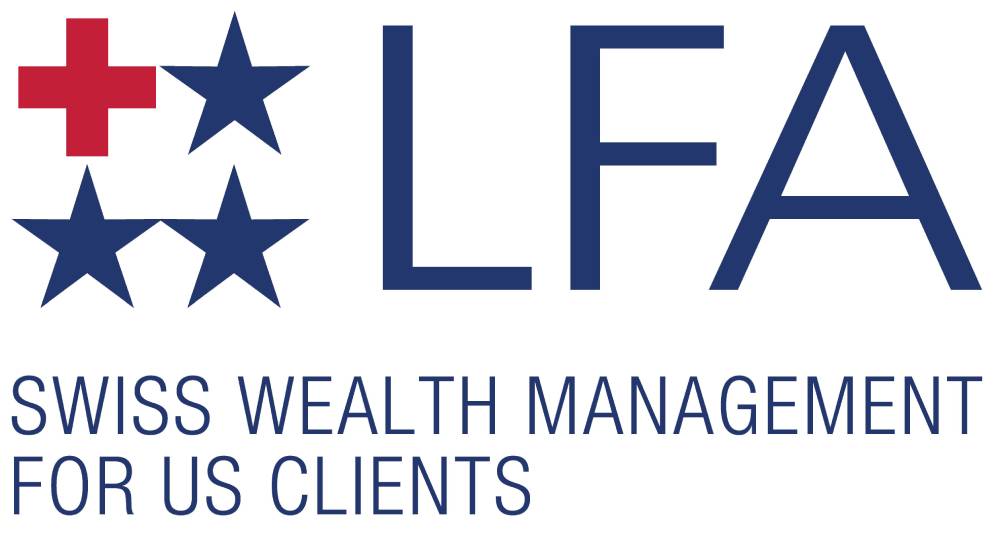Switzerland is not a member of the European Union so it has not converted its currency to Euros. It has chosen to continue using the Swiss franc (ISO code CHF) which is considered to be one of the most stable currencies in the world.
Are you worried about how to manage your wealth during periods of exceptional volatility? If so, use this quick guide for ways to put that worry behind you as you move forward with informed action.
The Swiss franc is also considered by many to be a safe haven during periods of unstable, global economic conditions. This is because Switzerland has the following characteristics
- A strong, stable economy
- Low inflation rates compared to other countries
- A history of low unemployment
- National debt that is less than 45% of GDP
Some investment professionals even believe the Swiss franc is more stable than gold and a better hedge against inflation. So what happens when you combine LFA, a Swiss-based firm providing you with wealth management in Switzerland? Well, you can potentially get a more diversified investment portfolio.
This article will help you understand:
- Diversifying into Swiss francs
- Diversifying with a Swiss-managed portfolio to help control risk
- Asset class investing
- Defensive portfolio management strategy
- Alternative investments that fight inflation
- Investing in cash equivalents
- Swiss asset management
Why diversify into Swiss francs?
We can answer this question with an even bigger question. Should American investors have 100% of their assets invested in securities that are denominated in U.S. dollars?
You would not invest 100% of your assets in one stock, one industry group, or one asset class. Prudent investors diversify their assets into multiple stocks, industries, and countries to reduce their risk of large losses. The same can be said about investors who invest their assets in multiple currencies to find the best stability and results.
Why Swiss francs? It is arguably one of the most stable currency in the world. And, unlike the United States, the Swiss do not have a $31 trillion national debt that undermines its stability in the global marketplace.
Why is a diversified Swiss-managed portfolio your best strategy for controlling risk?

If you put all of your eggs in one basket, and you happen to drop the basket, all of your eggs are broken. Or, in the case of your assets, all of your investments decline in value at the same time.
On the other hand, if your eggs are in different baskets and you drop one, you only break a portion of your eggs. This is the basis for the fundamental strategy that is practiced by prudent Swiss management: Do not limit your investments to one basket.
LFA is a Swiss-based financial advisor that provides wealth management services to American families. It has a global perspective to make sure its clients are invested in the best companies in the world versus the best companies that are headquartered in a particular country. Diversification by country, or global asset management, is just one strategy that LFA uses to improve performance and reduce risk.
What is asset class investing and why is it important?
Stocks and bonds are the two asset classes that are used most by wealth management firms like LFA. Stocks can be a domestic asset class (headquartered inside the U.S.), or an international asset class (headquartered outside the U.S.).
A global wealth management firm will invest in the best companies in the world regardless of where they are headquartered. A more important consideration is where these companies derive most of their earnings.
For example, a U.S. company may derive most of its earnings from outside the U.S. and an international company may derive most of its earnings from inside the U.S. This blurs the distinction between these two popular asset classes.
Then there are other asset classes not limited to stocks. For example, there are government and corporate bonds and real estate debt and equity.
The ideal asset classes do not fluctuate in value in the same direction at the same time.
What is a defensive portfolio management strategy?
A frequent goal for wealth managers like LFA in bull markets is to maximize capital appreciation consistent with its clients’ tolerances for risk. Think of it as more of an offensive strategy. In bear markets the asset management goals can switch to capital preservation; think of this as more of a defensive strategy.
Some conservative, low risk tolerance investors use defensive strategies in bull and bear market conditions.
These strategies may vary based on the economic and business conditions that are causing the bull and the bear markets. For example, the 2022 stock market decline in the U.S. was caused by inflation, recession, Covid, high fuel prices, supply chain disruptions, and disruptive government policies.
How do financial advisory firms manage assets during these adverse market conditions that triggered the bear market of 2022?
The primary strategy is to invest in asset classes that are less volatile and investments that can continue to meet their earnings projections during inflationary times and recessions.
What are examples of alternative investments that fight inflation?

Frequently used, anti-inflation investments are precious metals, income producing real estate, commodities, and TIPS (U.S. Treasury Inflation Protected Securities). Rental rates and TIPS’ principal amounts are indexed to inflation.
However, inflation protection is not their biggest attraction. What is more important is their market values do not decline in lockstep with the publicly traded securities in the stock market. For example, inflation increases, stock market valuations decline in value, and the price of gold goes up or remains stable.
The alternatives offset some of the decline in the primary asset classes. For example, this makes gold and real estate the perfect hedges against inflation because they can produce positive rates of return while the stock market is declining in value.
Some investors perceive gold to be an alternative currency, in particular in countries that have currencies that are losing their value.
Why invest your assets in cash equivalents?
As the name implies, a cash equivalent is the equivalent of cash. This type of investment (CDs, T-Bills, Money Market Funds) can be converted into cash in 30 days or less. And, because the investments are so short-term and liquid they do not fluctuate in value.
When you invest in cash equivalents you are playing defense with your assets. Their low rates of return do not make them attractive long-term investments. However, a positive rate of return is better than a negative rate of return during short time periods.
Therefore, investing in cash equivalents is a short-term strategy during periods of market volatility. It is not a good long-term strategy because it may not produce a positive “real” rate of return (gross return minus inflation is your real rate of return) that protects the purchasing power of your assets. For example, your gross return is 3% and inflation is 6% so your real return is a negative 3%.
However, a 3% gain is better than a 10% loss (a 13% swing). Or, the stock market is down 10% and you are up 3% so your overall loss is reduced to 7%. A negative rate of return is compounded by the loss in purchasing power due to inflation. How can a Swiss-based asset manager help?
A Swiss-based financial advisor, like LFA, that provides global wealth management services can provide the expertise you need to diversify your assets based on currency and geography. Call our team today to learn more about


